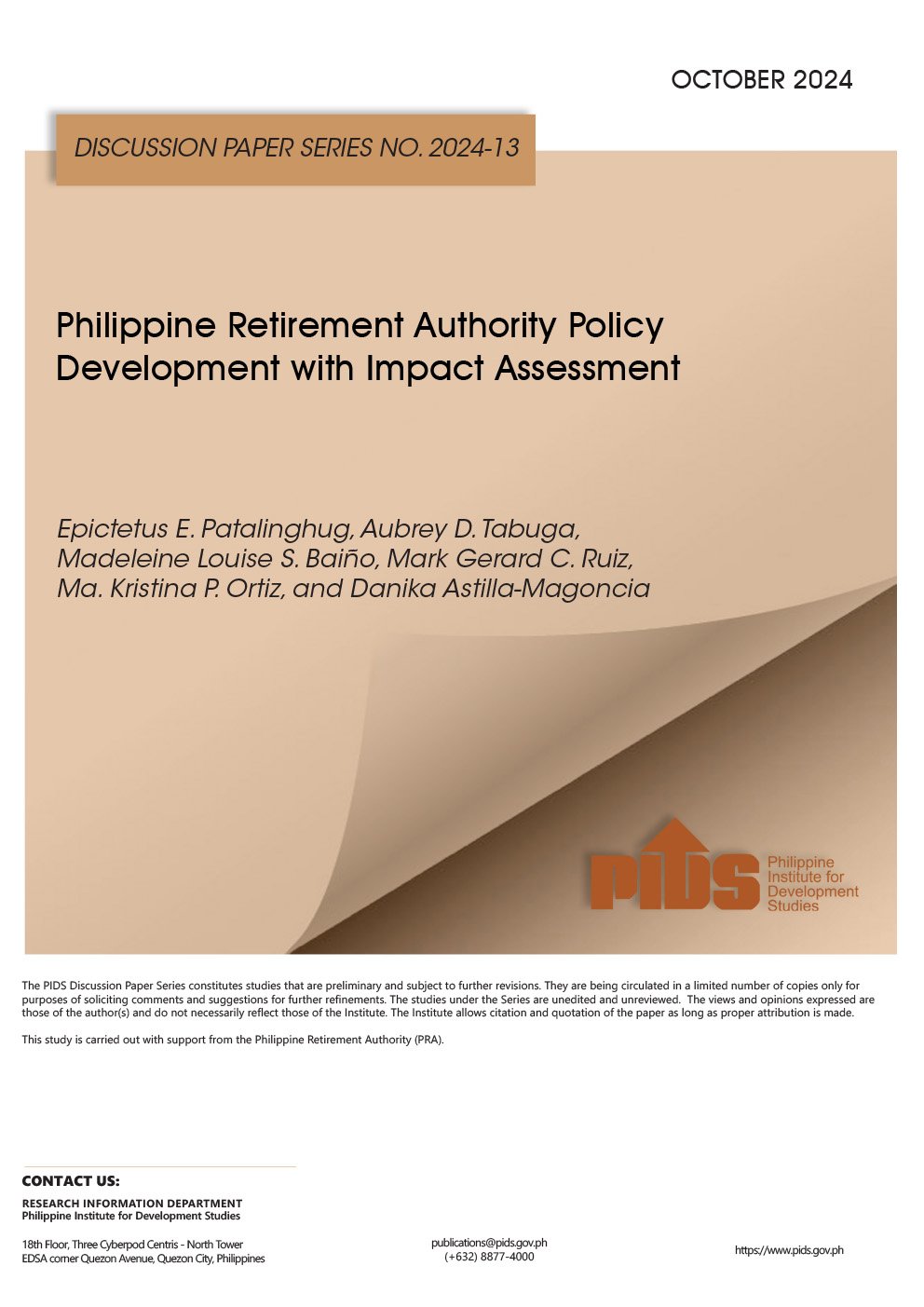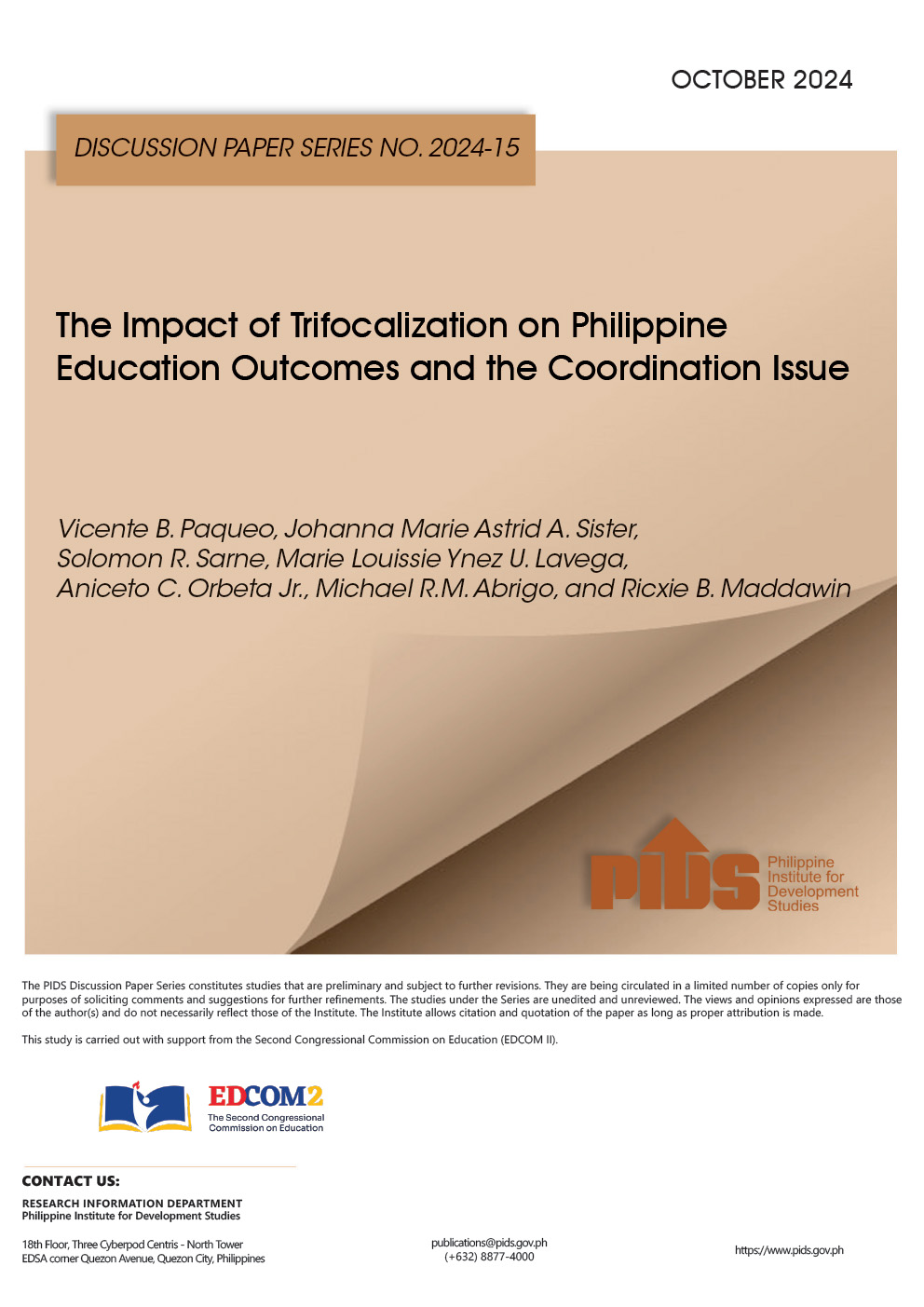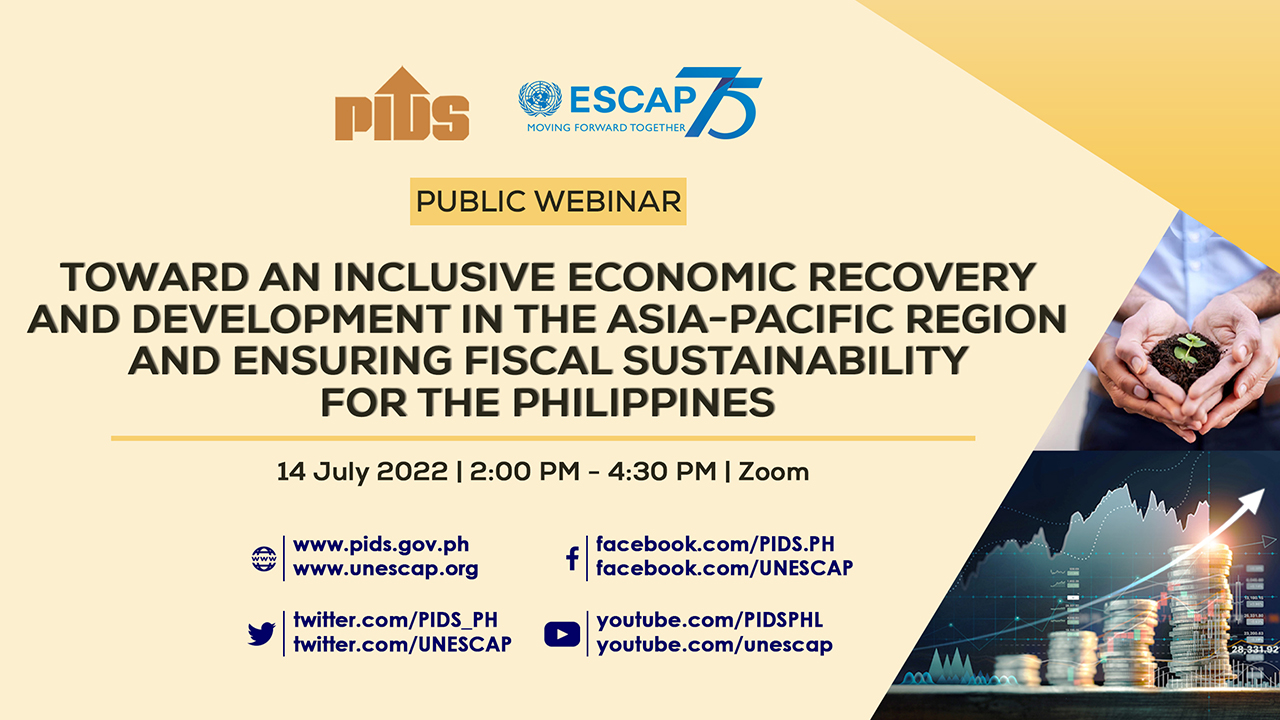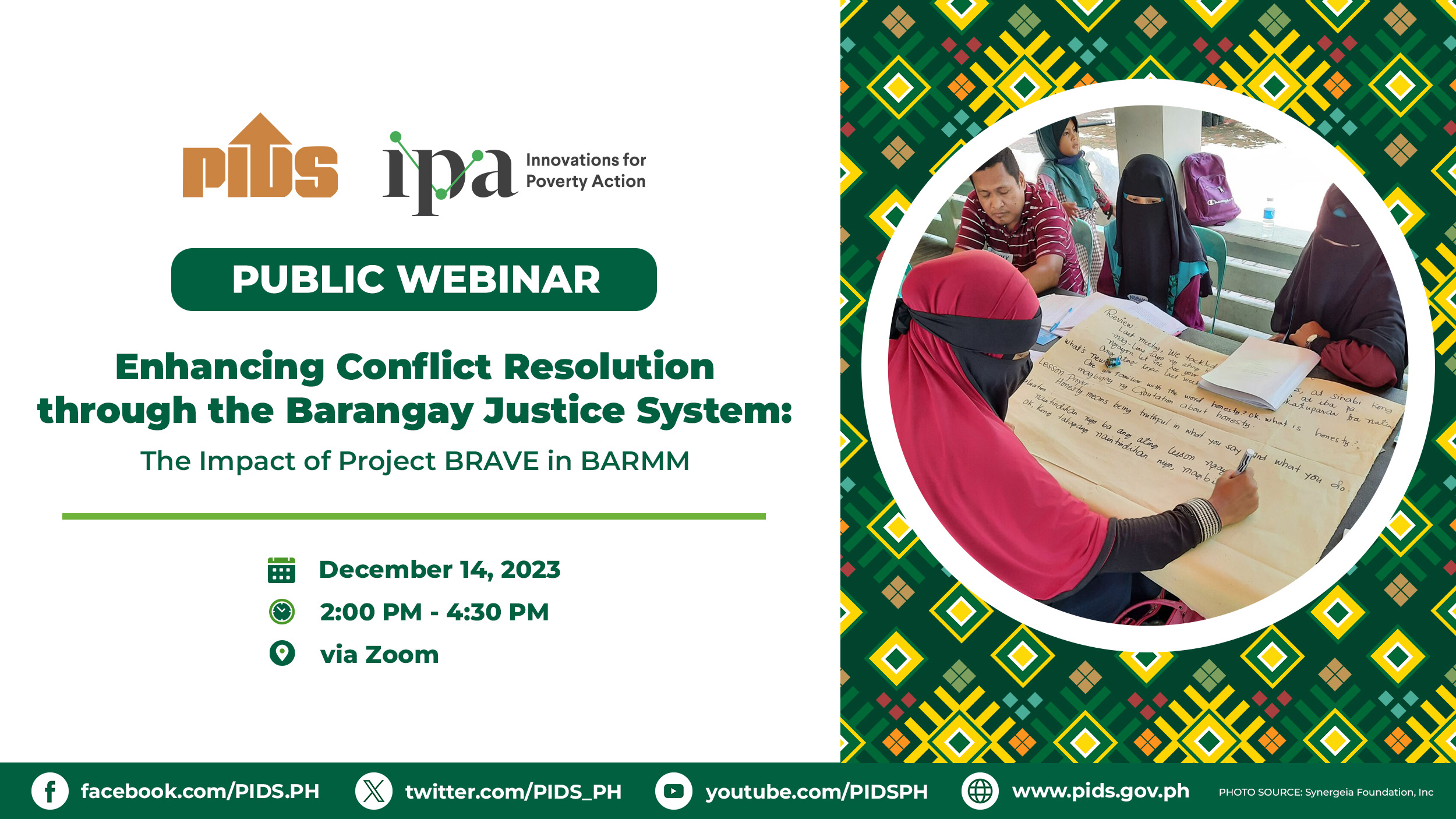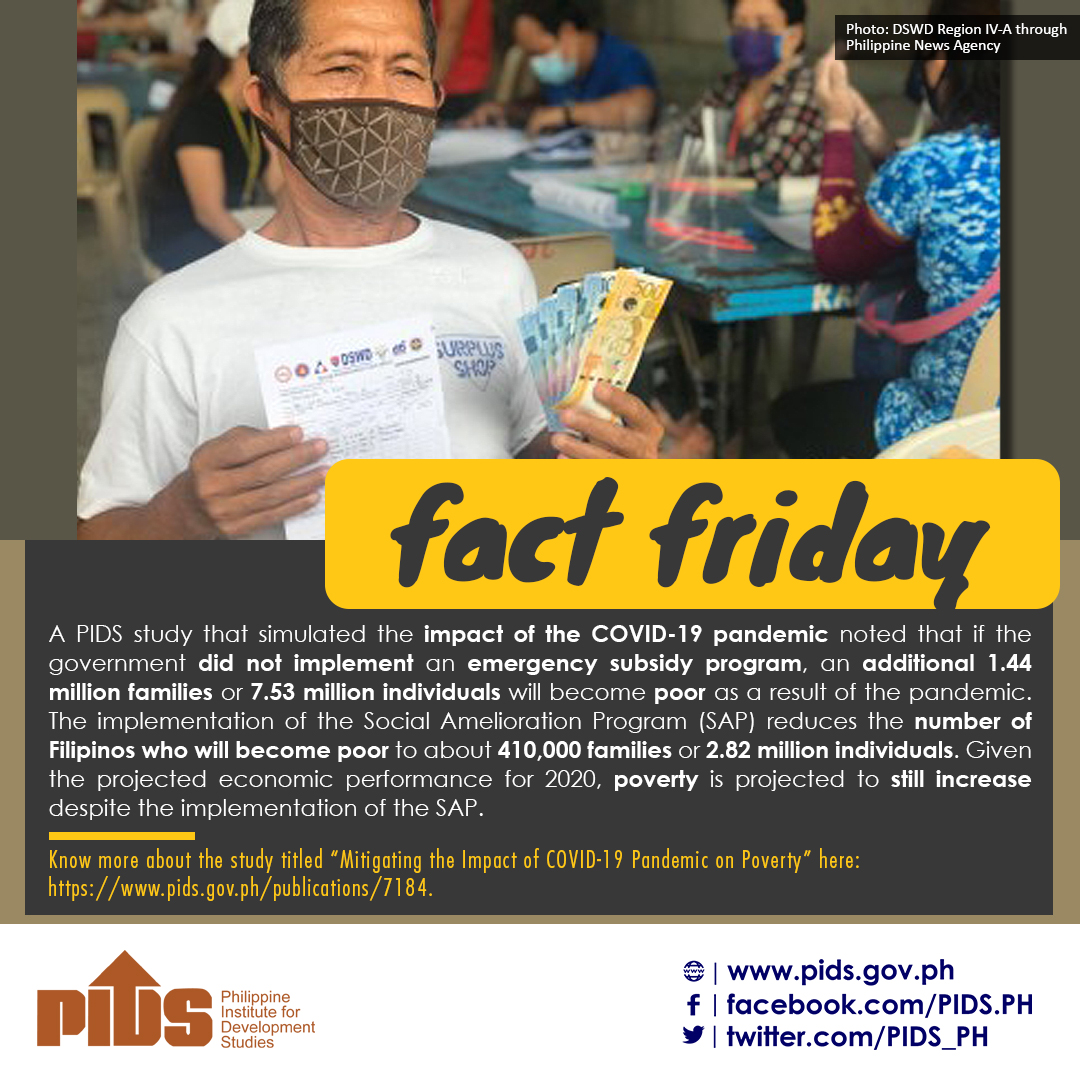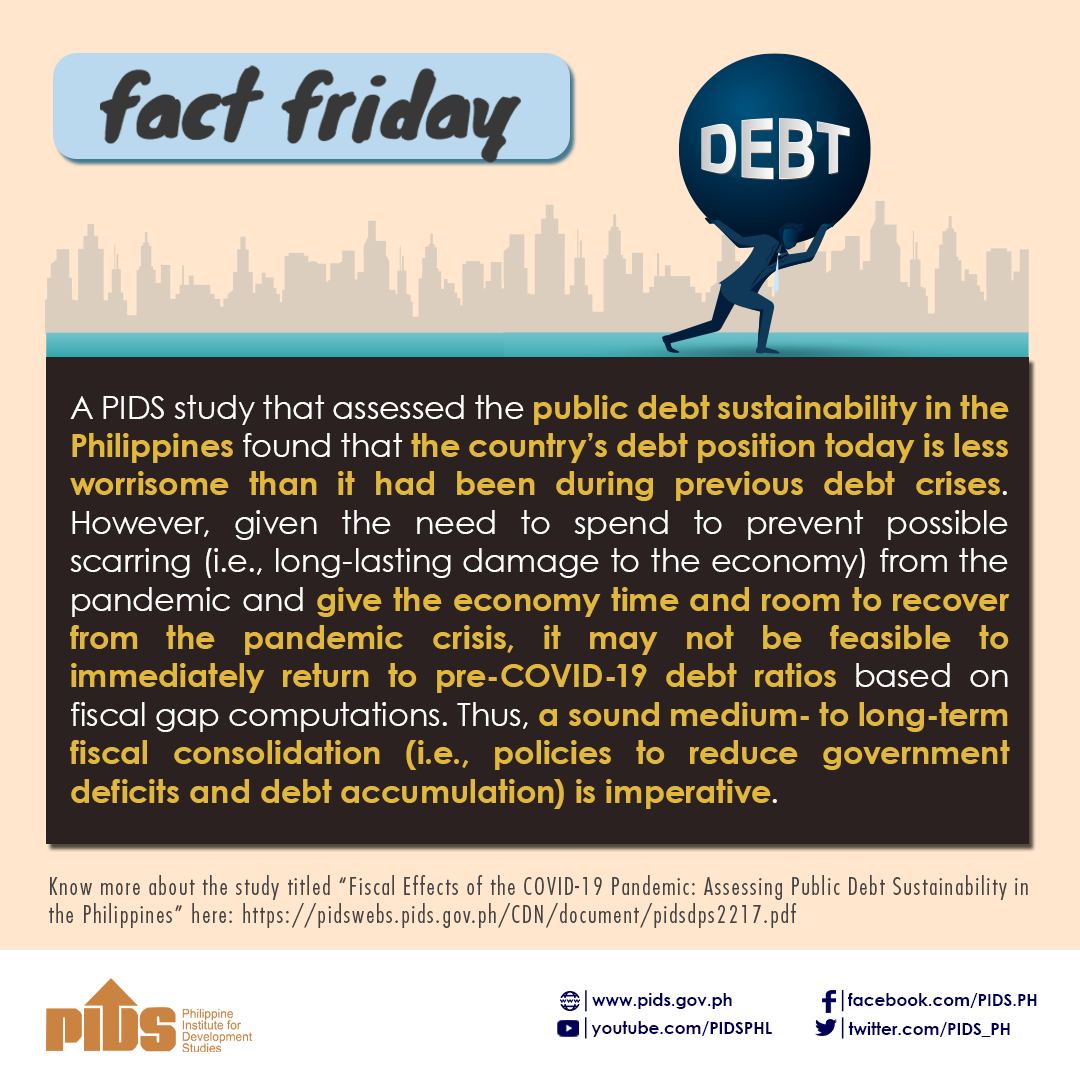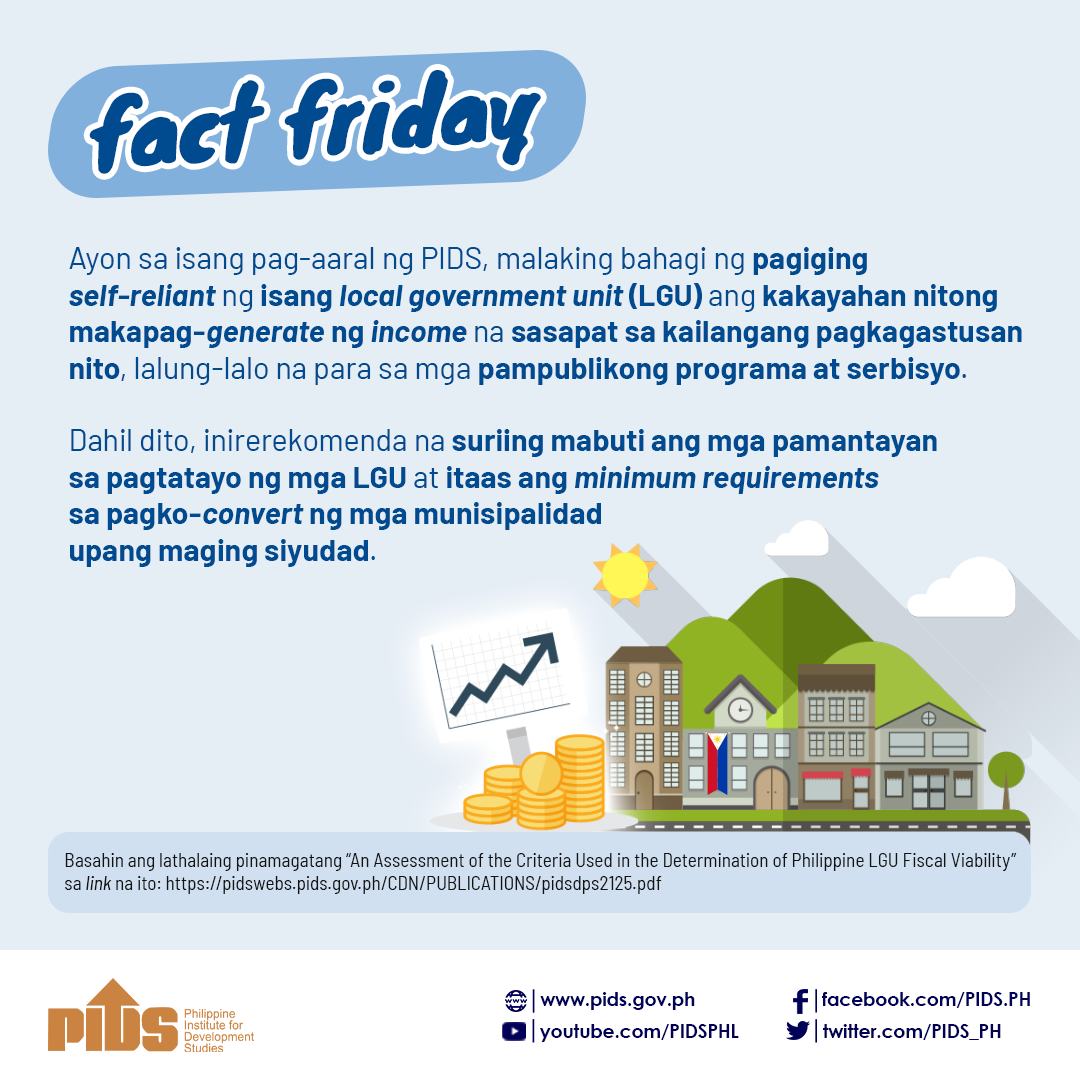Think tank urges govt to review incentives policy
IN the face of evidence showing that fiscal incentives do not significantly affect the level of foreign direct investment (FDI) in the country, the state think tank Philippine Institute for Development Studies (PIDS) is urging the government of the Philippines and other Southeast Asian countries to review their fiscal incentive policies urgently.
Citing various research studies, PIDS said that fiscal incentives could hypothetically raise total investment by attracting foreign investors, but that available evidence contradicts that assumption, and shows that fiscal incentives do not significantly affect the level of FDI in the country.
“A healthy overall economic status of a country is still the more important determinant of FDI,” PIDS said.
The government think tank also pointed out that surveys show investors themselves claim that they do not make decisions based on incentives alone.
“For the most part, the investment decisions have already been made by the time incentives are taken into consideration,” it said.
In the Philippines, there is ongoing debate over whether the benefits of fiscal incentives outweigh the costs in terms of forgone revenue, with one new law, the Tax Incentives and Management Act (TIMTA) already having been signed last December, and a second proposed law, the Rationalization of Fiscal Incentives, expected to be taken up by the incoming 17th Congress.
Common investment promotion
It is common for developing countries to offer foreign investors significant fiscal incentives in order to encourage FDI and eventually stimulate local economic growth.
Some of these fiscal incentives include lengthy tax holidays, expensing or other generous tax treatment of new investment expenditures, and other tax reductions as well as providing roads, worker training, and other public inputs at below market prices.
Tax incentives are thought to help stimulate foreign investment effectively and efficiently. In general, developing countries grant tax incentives to investments related to manufacture, exploration and extraction of mineral reserves, promotion of export, and the tourism and leisure sectors.
“These countries usually do not have incentives aimed at the headquarters of companies and service sectors, except for Malaysia, Singapore, and the Philippines, which employ reduced corporate tax rates to attract company headquarters,” PIDS said.
PIDS also noted that early econometric studies generally reveal that the effect of tax policy on FDI is rather limited, at least compared to other factors such as political stability, the costs and availability of labor and basic infrastructure.
“In the Philippines, the history of granting fiscal incentives dates as far back as 1946, when tax exemptions were given to ‘new and necessary’ industries for a period of four years,” it said.
The think tank pointed out that the most important kinds of fiscal incentives are those in the form of income tax holiday and exemption from import duties.
“Since policymakers agree that FDI plays a crucial role in economic growth, the design and aim of fiscal incentives, in recent years, focused more on attracting investments,” it said.
Furthermore, PIDS said the advantages and disadvantages of fiscal incentives have been discussed in several earlier studies.
One study explained that FDI involves not only the entry of capital but also the internal utilization of intangible assets such as technology and managerial expertise that are specific to a given firm.
If this transfer of technology, managerial expertise, skills and other intangible assets from one country to another are completely internalized, the rate of return will fully capture the net benefits of an investment.
Another study noted that fiscal incentives do not induce more investment per se but channel investments to desirable sectors.
More study needed
A particular report also emphasized that the lack of available information on the relationship between fiscal incentives and FDI is indeed an important issue.
One way to address this is to prepare and present annual reports that show the benefits generated by foreign investment projects such as level of employment generated, amount of investment on infrastructure, net exports, among others.
Another way is to determine the primary attractions for investment in the Philippines.
It recommended that surveys might be conducted in order to pinpoint the strategies and considerations of corporations when choosing an investment location.
“This will help the country identify what factors (i.e., general tax regime, level of tax incentives, infrastructure, available human capital, etc.) truly matter to investors and therefore further improve on them,” it said.
Next, there is a need to reform the administration of fiscal incentives in the country.
Since the selection of firms qualifying for incentives is decided by several committees, including the Board of Investments, National Economic and Development Authority, Department of Finance, and Department of Agriculture, the process of granting incentives may be subject to lobbying and political pressure, PIDS noted.
Lastly, PIDS said the “race-to-the-bottom” effect of the tax competition in the region undermined the Philippines’ budget.
“There is thus a need for the countries in the Asean [Association of Southeast Asian Nations] to coordinate in order to limit the size and scope of investment incentives. This will protect countries from the harmful effects of tax competition on their own budgets,” it concluded.//
IN the face of evidence showing that fiscal incentives do not significantly affect the level of foreign direct investment (FDI) in the country, the state think tank Philippine Institute for Development Studies (PIDS) is urging the government of the Philippines and other Southeast Asian countries to review their fiscal incentive policies urgently.
Citing various research studies, PIDS said that fiscal incentives could hypothetically raise total investment by attracting foreign investors, but that available evidence contradicts that assumption, and shows that fiscal incentives do not significantly affect the level of FDI in the country.
“A healthy overall economic status of a country is still the more important determinant of FDI,” PIDS said.
The government think tank also pointed out that surveys show investors themselves claim that they do not make decisions based on incentives alone.
“For the most part, the investment decisions have already been made by the time incentives are taken into consideration,” it said.
In the Philippines, there is ongoing debate over whether the benefits of fiscal incentives outweigh the costs in terms of forgone revenue, with one new law, the Tax Incentives and Management Act (TIMTA) already having been signed last December, and a second proposed law, the Rationalization of Fiscal Incentives, expected to be taken up by the incoming 17th Congress.
Common investment promotion
It is common for developing countries to offer foreign investors significant fiscal incentives in order to encourage FDI and eventually stimulate local economic growth.
Some of these fiscal incentives include lengthy tax holidays, expensing or other generous tax treatment of new investment expenditures, and other tax reductions as well as providing roads, worker training, and other public inputs at below market prices.
Tax incentives are thought to help stimulate foreign investment effectively and efficiently. In general, developing countries grant tax incentives to investments related to manufacture, exploration and extraction of mineral reserves, promotion of export, and the tourism and leisure sectors.
“These countries usually do not have incentives aimed at the headquarters of companies and service sectors, except for Malaysia, Singapore, and the Philippines, which employ reduced corporate tax rates to attract company headquarters,” PIDS said.
PIDS also noted that early econometric studies generally reveal that the effect of tax policy on FDI is rather limited, at least compared to other factors such as political stability, the costs and availability of labor and basic infrastructure.
“In the Philippines, the history of granting fiscal incentives dates as far back as 1946, when tax exemptions were given to ‘new and necessary’ industries for a period of four years,” it said.
The think tank pointed out that the most important kinds of fiscal incentives are those in the form of income tax holiday and exemption from import duties.
“Since policymakers agree that FDI plays a crucial role in economic growth, the design and aim of fiscal incentives, in recent years, focused more on attracting investments,” it said.
Furthermore, PIDS said the advantages and disadvantages of fiscal incentives have been discussed in several earlier studies.
One study explained that FDI involves not only the entry of capital but also the internal utilization of intangible assets such as technology and managerial expertise that are specific to a given firm.
If this transfer of technology, managerial expertise, skills and other intangible assets from one country to another are completely internalized, the rate of return will fully capture the net benefits of an investment.
Another study noted that fiscal incentives do not induce more investment per se but channel investments to desirable sectors.
More study needed
A particular report also emphasized that the lack of available information on the relationship between fiscal incentives and FDI is indeed an important issue.
One way to address this is to prepare and present annual reports that show the benefits generated by foreign investment projects such as level of employment generated, amount of investment on infrastructure, net exports, among others.
Another way is to determine the primary attractions for investment in the Philippines.
It recommended that surveys might be conducted in order to pinpoint the strategies and considerations of corporations when choosing an investment location.
“This will help the country identify what factors (i.e., general tax regime, level of tax incentives, infrastructure, available human capital, etc.) truly matter to investors and therefore further improve on them,” it said.
Next, there is a need to reform the administration of fiscal incentives in the country.
Since the selection of firms qualifying for incentives is decided by several committees, including the Board of Investments, National Economic and Development Authority, Department of Finance, and Department of Agriculture, the process of granting incentives may be subject to lobbying and political pressure, PIDS noted.
Lastly, PIDS said the “race-to-the-bottom” effect of the tax competition in the region undermined the Philippines’ budget.
“There is thus a need for the countries in the Asean [Association of Southeast Asian Nations] to coordinate in order to limit the size and scope of investment incentives. This will protect countries from the harmful effects of tax competition on their own budgets,” it concluded.//


